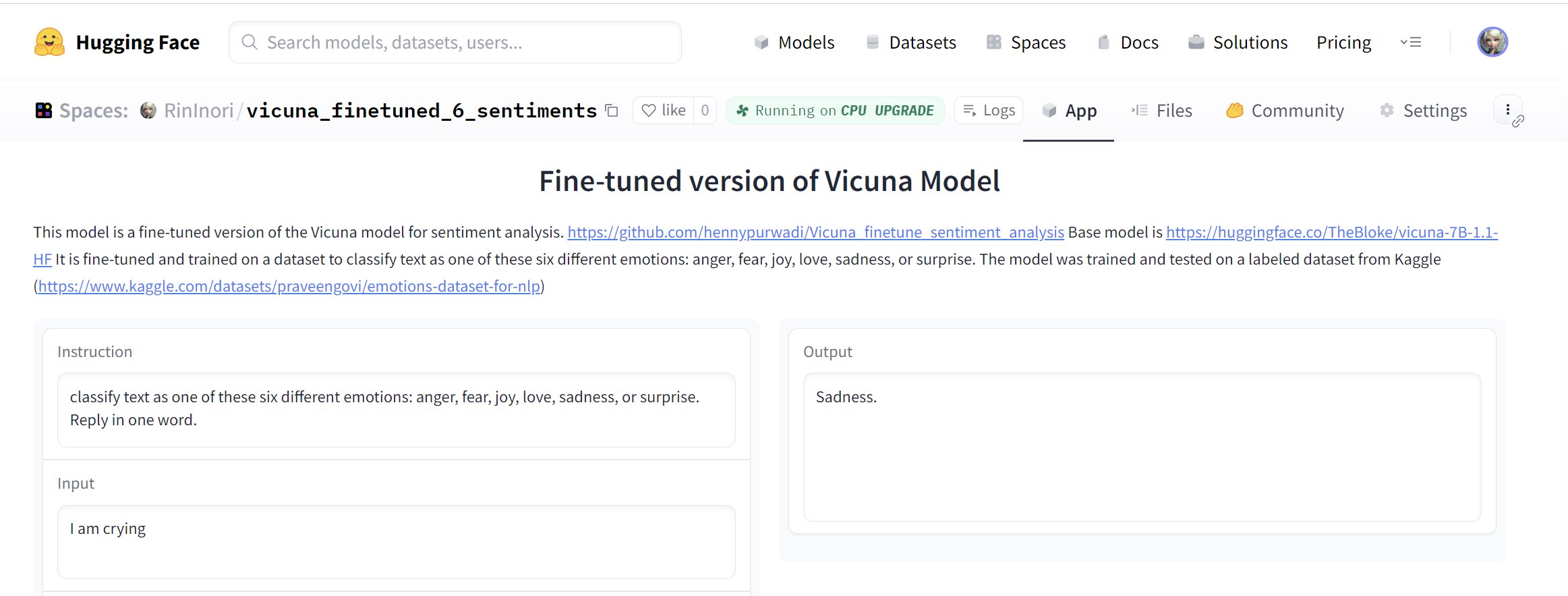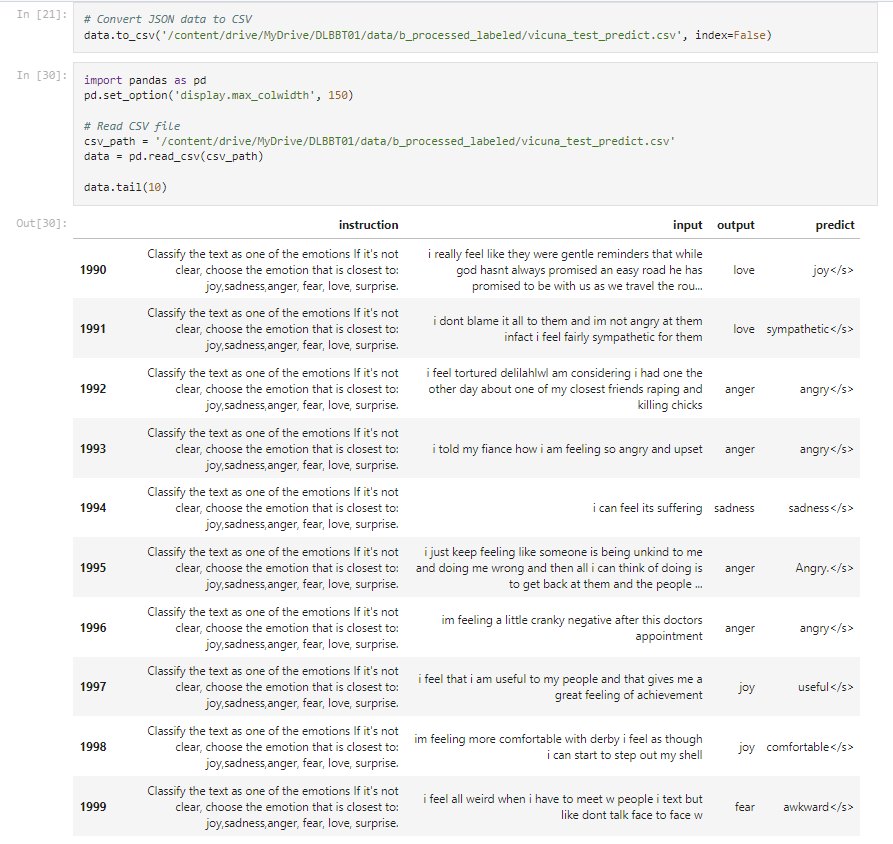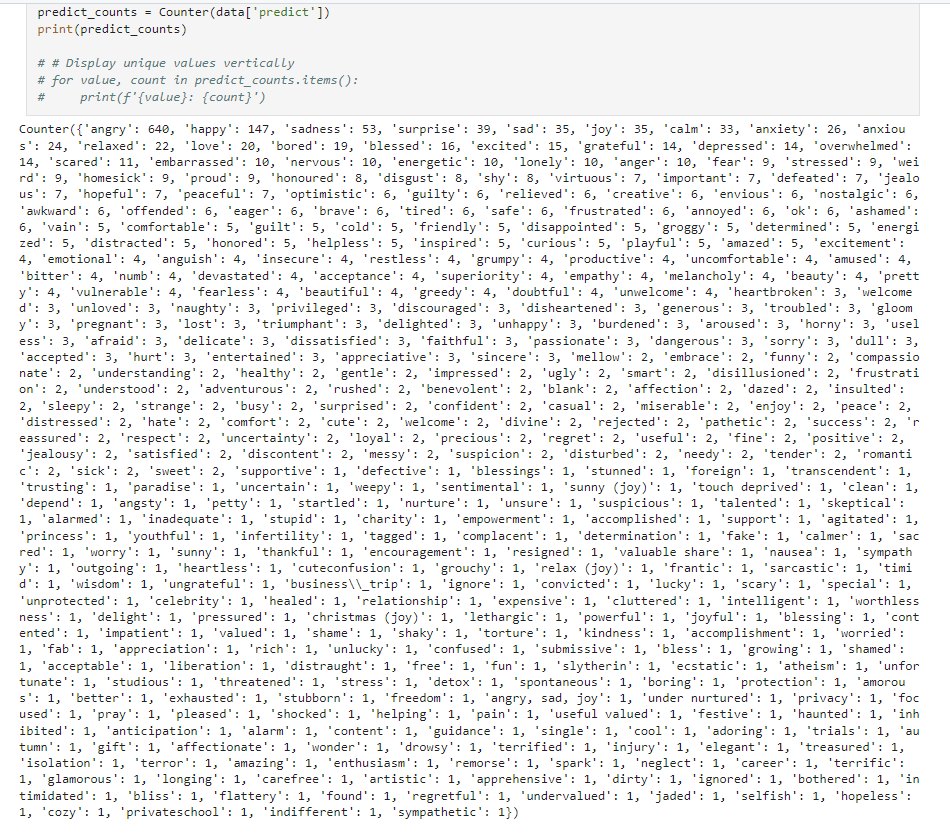Fine-tune and Train a custom dataset for sentiment_analysis on top of Vicuna
Vicuna_finetune_sentiment_analysis through PEFT and LoRA.
To Run the app: https://huggingface.co/spaces/RinInori/vicuna_finetuned_6_sentiments
Github fine-tune code link: https://github.com/hennypurwadi/Vicuna_finetune_sentiment_analysis
#Fine-tuned Vicuna model for sentiment analysis, trained using dataset from Kaggle: https://www.kaggle.com/datasets/praveengovi/emotions-dataset-for-nlp
BASE_MODEL = "TheBloke/vicuna-7B-1.1-HF"
LORA_WEIGHTS = "RinInori/vicuna_finetuned_6_sentiments"
Vicuna is created by fine-tuning a LLaMA base model using approximately 70K user-shared conversations gathered from ShareGPT.com with public APIs. To find more about Vicuna here: https://lmsys.org/blog/2023-03-30-vicuna/
To train a custom dataset on top of Vicuna if we don’t have good access to data-center grade GPU, is to fine-tune it through PEFT and LoRA.
PEFT = parameter-Efficient Fine_Tuning of Billion-Scale Models on Low-Resource hardware.
LoRA = Low-Rank Adaptation of Large Language Models is a training method that accelerates the training of large models while consuming less memory. It adds pairs of rank-decomposition weight matrices (called update matrices) to existing weights, and only trains those newly added weights.
To RUN APP: https://huggingface.co/spaces/RinInori/vicuna_finetuned_6_sentiments
instruction="Classify the text as one of the emotions If it's not clear, choose the emotion that is closest to: joy,sadness,anger, fear, love, surprise."
Seems LLM doesn't like to follow the instruction, and has it's own decision:
Model Hub: https://huggingface.co/RinInori/vicuna_finetuned_6_sentiments
Ref: https://www.youtube.com/watch?v=Us5ZFp16PaU
Ref: https://arxiv.org/abs/2106.09685
Ref: https://huggingface.co/docs/diffusers/training/lora#lowrank-adaptation-of-large-language-models-lora
Ref: Hutchinson, B., Ostendorf, M., & Fazel, M. (2011, September). Low Rank Language Models for Small Training Sets. IEEE Signal Processing Letters, 18(9), 489–492. https://doi.org/10.1109/lsp.2011.2160850


